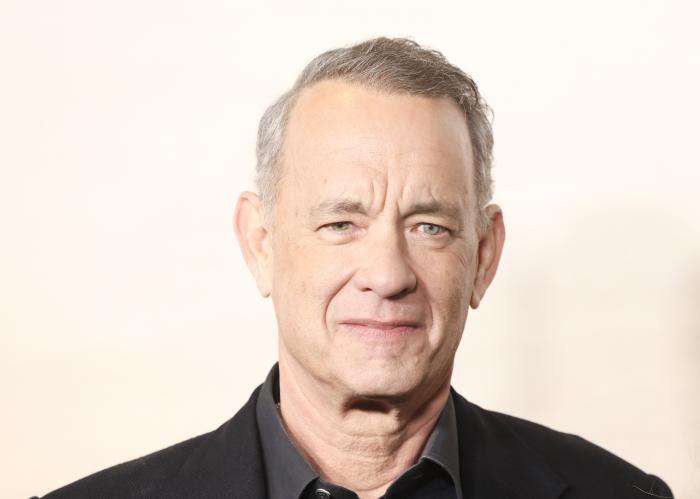

Forget The Hurt Locker, I'll Take Strange Days
By Drew Morton | Film | July 20, 2009 |
By Drew Morton | Film | July 20, 2009 |
Before The Hurt Locker (2009) will be nominated for Best Picture in the newly renovated Oscar pool (the Academy of Motion Picture Arts and Sciences recently increased the number of nominated films from five to ten), it has to take home my nomination for the most overrated film of the year. Don’t misunderstand, The Hurt Locker is far from a bad film, it’s actually quite suspenseful and well-crafted for an action film but it is not a groundbreaking or earth shattering piece of art. The characterization is weak (war is a drug…got it!), the dialogue has its share of bumps (just look at that exchange regarding the wedding ring, filed under devices that almost killed the protagonist), and the action is shot in wash-out, hand-held, 16mm with nearly as many cuts as a Michael Bay film. In other words, the action sequences, which have traditionally been one of director Kathryn Bigelow’s strong suits, are rather cliché with the noted exception of the grueling sniper duel.
Why have critics and the film community in general been so compelled to oversell a rather standard combat film? First, there seems to be a desire to finally be able to hold up a film dealing with the Iraq war as being relevant. Secondly and perhaps more significantly, Bigelow is one of the most prominent female directors working in Hollywood and perhaps there is a desire to shake things up come awards season, much like the Denzel Washington/Halle Berry Oscar wins in 2000. The issue of female presence behind the camera has become an area of increased attention during the past two years. In 2007, the American Film Institute updated their Top 100 Films and the absence of a film by a female director (one of my favorites, the oft-cited Meshes of the Afternoon by avant-garde filmmaker Maya Deren was disqualified because it is not feature length) stirred much debate. This debate was further aggravated with the 2008 Academy Award nominations when Danny Boyle’s credited co-director Loveleen Tandan did not share the Best Director nomination with him (this also occurred in 2004 with City of God).
I’m not denying that both awards organizations and film canonization have left women by the wayside, which is a incredibly sad truth. Nor am I debating Bigelow’s talent, which she obviously possesses in spades. What I am attempting to argue is that if you want to find an example of Bigelow at her best, don’t look at The Hurt Locker … look at her extremely underappreciated film Strange Days (1995).
Strange Days takes place in Los Angeles over the span of three days: December 30th and 31st 1999 onto the New Year and millennium. The Los Angeles that Bigelow presents is full of trash-can fires and angry protests that have caused the military to come to the aid of the LAPD, complete with heavy machine guns, armored personnel carriers, and tanks. Much of the violence is racially motivated by fearful or fascist cops upon the city’s black population. After the murder of a prominent rapper and civil rights figure, Jeriko One (Glenn Plummer), the city becomes a primed powder keg, just waiting for a spark. Roaming this bleak cityscape is Lenny Nero (Ralph Fiennes), a former LAPD vice squad member who now deals “Playback.” “Playback” is not a drug in a traditional sense but rather a video deck that directly wires into the brain, providing a first-person view from another wearer as they make love to a beautiful woman, run along the beach or, as the amazing opening shot depicts, rob a liquor store.
The technology, frowned upon by the law unless being utilized in an official capacity (i.e. as the visual version of a undercover wire), provides Lenny’s consumers with the ability to “take a walk to the dark end of the street” without any real world repercussions. Yet, while experiencing “Playback” may not have any consequences (except for the occasional overdose that makes the brain’s frontal lobes look like “two runny eggs”), dealing in it does. Once Lenny finds himself in possession of a snuff tape of a friend (Brigitte Bako) being raped and murdered, filmed from the point-of-view of the murderer, he finds himself being pursued by a pair of cops (Vincent D’Onofrio and William Fichtner), a paranoid record executive (Michael Wincott) who is now dating Lenny’s ex (Juliette Lewis), and the murderer himself. Coming to Lenny’s aid are his two best friends, a personal security officer named Mace (Angela Bassett) and Max (Tom Sizemore), a police officer.
If it seems as if I’m describing the cityscape and characters Bigelow presents over the plot, I have two reasons. First, Strange Days, apart from being a sci-fi film, is very much a mystery and to divulge much more would take away from some of the ride. Secondly, the world Bigelow constructs is so vividly defined not only in terms of sights (tanks roaming the video-screen lined streets) but sounds as well (the eclectic music styles that make up the soundtrack). Yes, Strange Days also provides Bigelow opportunity to showcase her skills as an action choreographer in a more traditional sense but the quality I enjoy in this film is that she shows us so much more, particularly through the “Playback” technology and the pioneering camerawork Bigelow orchestrated (these are, after all, sequences spanning time and space without the aid of a single cut).
That is not to say that Strange Days is a flawless film. Juliette Lewis, who I have never been a fan of, is sorely miscast as Lenny’s former flame. While she may not have been aided by James Cameron (screenwriter and director of The Terminator, Aliens, The Abyss) and Jay Cocks’s (screenwriter of The Age of Innocence and Gangs of New York) rather strong screenplay, both her personality and motivations are one-note and shrill. If I was Lenny and given the choice between Lewis’s Faith and Bassett’s Mace, this movie would not have a third-act. While Lewis is rather poor, Fiennes is both smarmy and charming as Lenny and Bassett is at her ass-kicking, sexy best here. Mace must have been the inspiration for Brian K. Vaughan’s Agent 355 in Y the Last Man (2002-2008) … but I digress. Speaking of the film’s third-act, where upon the mystery is solved and the murderer delivers a wrap-up speech worthy of a James Bond villain, the film slightly jumps the tracks. Character motivation, most obviously that of an unnatural coupling, are completely irrational and even Bigelow’s ability to construct action sequences (90 degree cuts during a climactic dialogue is really distracting!) experiences a falling off.
Despite these criticisms, Strange Days is the best piece of cyberpunk to grace celluloid since Ridley Scott’s Blade Runner (1982). I would even tend to prefer it to the first Matrix (1999) for multiple reasons, if not primarily for the bad taste that Reloaded and Revolutions left in on my cinematic palate. The film is obviously my favorite of Bigelow’s filmography, which also features the genre-bending vampire-western Near Dark (1987) and the irrational but thrilling Point Break (1991). While I wouldn’t advise you not to see The Hurt Locker, I would tend to recommend the overlooked before the overrated.
Drew Morton is a Ph.D. student in Cinema and Media Studies at the University of California-Los Angeles. He has previously written for the Milwaukee Journal Sentinel and UWM Post and is the 2008 recipient of the Otis Ferguson Award for Critical Writing in Film Studies.
More Like This
'Hundreds of Beavers' Turns the Silent Movie Wackiness Up To Eleven
Review: ‘Greedy People’ Really Wants to be a Coen Brothers Film When it Grows Up
A Box Office Preview of the Deadest Movie Weekend of the Year
Review: Sweet Sticky 'Strange Darling' Is Rom-Com For Psychopaths
Julia Fox Manifested Her Latest Role

Tom Hanks Is Not Trying To Sell You Drugs
Three Trailers: What Happened Before Rosemary's Baby, and Zoe Saldaña In Her Own Skin
Jack White Threatens 'Fascists' In Donald Trump's Campaign With A Lawsuit
Taylor Swift Has a Brittany Mahomes Problem
'The Acolyte's Amandla Stenberg Got Thrown to the Wolves
Christina Aguilera Thinks It’s ‘Corny’ When Celebrities ‘Do Things Intentionally’ to Stay Relevant
Pajiba Love

Taylor Swift Has a Brittany Mahomes Problem
Reviews